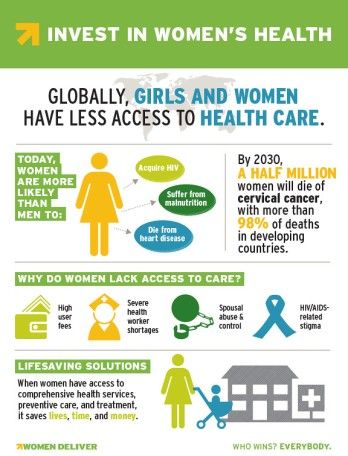Women’s reproductive health plays a crucial role in their overall well-being. Understanding and taking care of this aspect of their body is essential to lead a healthy and fulfilling life. This guide aims to provide insights into various aspects of women’s reproductive health and wellness.
The Menstrual Cycle
The menstrual cycle is a natural process that occurs in women of reproductive age. It involves the shedding of the inner lining of the uterus, which results in the monthly bleeding known as menstruation. Understanding your menstrual cycle, tracking it, and recognizing any irregularities can help identify potential health issues or conditions such as hormonal imbalances, polycystic ovary syndrome (PCOS), or endometriosis.
Contraception
Contraception is an essential aspect of reproductive health. There are various methods available for women to prevent unplanned pregnancies and make informed decisions about their reproductive choices. These methods include hormonal contraceptives such as birth control pills, patches, injections, and intrauterine devices (IUDs). It’s important to consult with a healthcare professional to determine the most suitable option based on individual needs and medical history.
Sexual Health
Sexual health is a fundamental aspect of women’s reproductive well-being. Regular sexual activity can help maintain a healthy sex life, promote a positive body image, relieve stress, and improve overall mental and physical health. It is crucial to practice safe sex and undergo regular screenings for sexually transmitted infections (STIs) to protect oneself and sexual partners from potential risks.
Preconception Planning
Preconception planning involves preparing for a healthy pregnancy and maximizing the chances of conceiving. It includes adopting a healthy lifestyle, such as maintaining a balanced diet, regular exercise, managing stress levels, and avoiding harmful substances like tobacco, alcohol, and drugs. Additionally, women should consult with healthcare providers to discuss any pre-existing medical conditions or medications that may affect fertility or pregnancy.
Pregnancy and Prenatal Care
Pregnancy is a transformative and exciting time for women. Adequate prenatal care plays a vital role in ensuring a healthy pregnancy and safe delivery. Regular check-ups, proper nutrition, exercise, and mindfulness are crucial during this stage. Monitoring fetal development, addressing any concerns or complications, and preparing for childbirth are essential aspects of women’s reproductive health during pregnancy.
Menopause and Beyond
Menopause is a significant milestone that marks the end of a woman’s reproductive years. It usually occurs in the late 40s or early 50s and involves the cessation of menstrual cycles. Understanding the physical and emotional changes associated with menopause helps women navigate this phase with ease. Discussing symptoms with healthcare professionals and exploring options for hormone replacement therapy, if needed, can alleviate discomfort and promote overall well-being.
Self-Care and Mental Health
Self-care and mental health are crucial aspects of overall reproductive wellness. Engaging in activities that promote relaxation, stress reduction, and emotional well-being can positively impact reproductive health. Incorporating healthy coping mechanisms, seeking support from loved ones, and addressing any mental health concerns ensure a holistic approach to women’s reproductive wellness.
Conclusion
Understanding and prioritizing women’s reproductive health and wellness is essential for overall well-being. By familiarizing oneself with the menstrual cycle, practicing safe sex, seeking preconception planning, receiving prenatal care, and embracing self-care, women can successfully navigate different stages of their reproductive journey and lead a fulfilling life.

